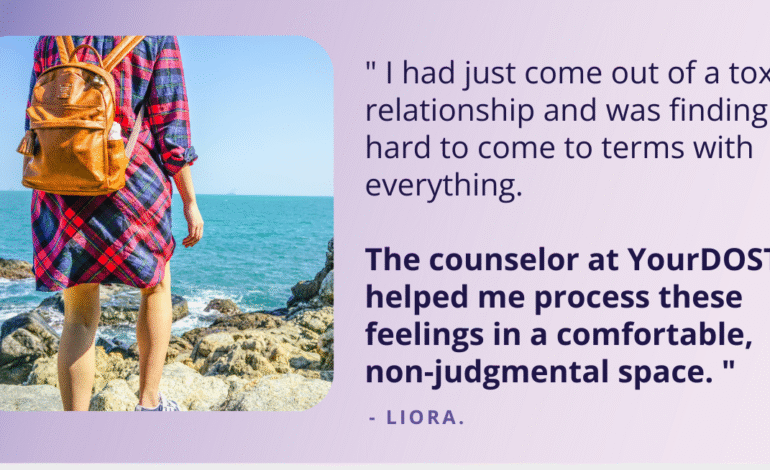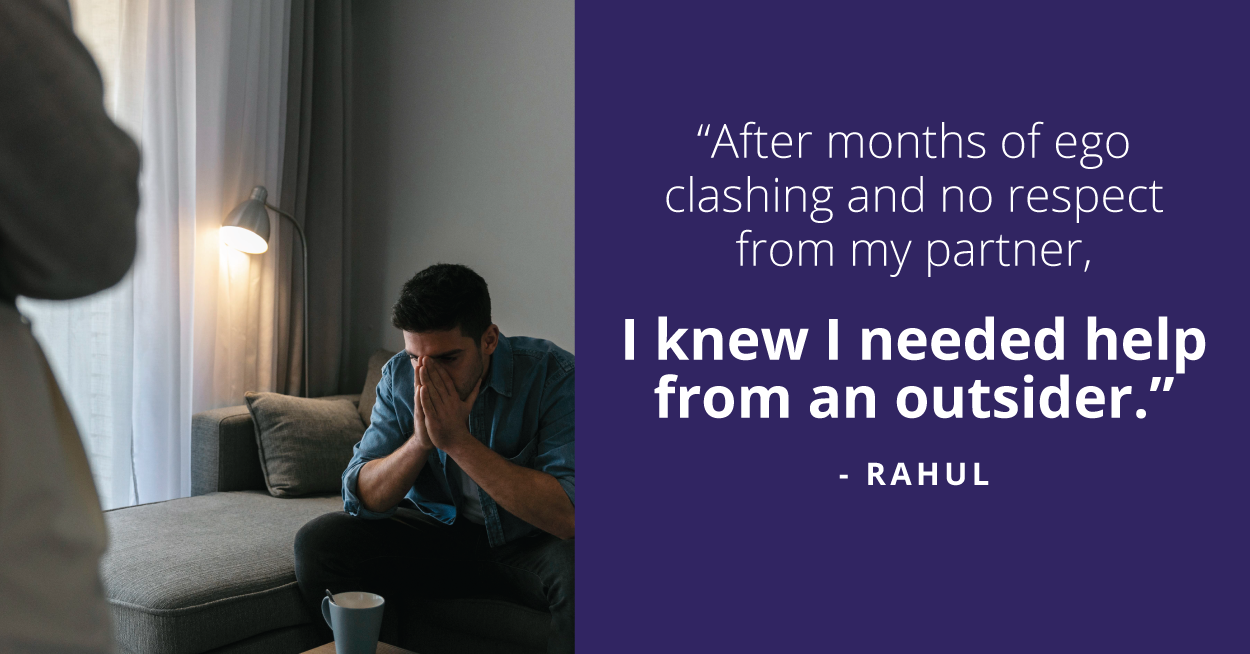How to Communicate Effectively in a Relationship
Kriti and Bhaskar, married for 4 years, had a baby. One day Bhaskar came home to find the entire living room strewn, baby howling and Kriti nowhere in sight. Finding her in the kitchen, he shouted, “What is wrong with you, are you deaf or something? Can’t you hear the baby crying, can’t you even clear the room? I think you are not interested in anything, not even me”.
Kriti screamed giving a hard push to Bhaskar, “Yeah, you always think I am good for nothing. It doesn’t matter to you at all if I am dead or alive. You are enjoying in office leaving baby’s entire responsibility on me. I am sick and tired of you”.

Image: Source credit
This barrage of arguments, counter-arguments turned into a vicious cycle of sarcastic remarks, criticism, insults, blame, recalling past mistakes and the original point of contention got lost in the cacophony, setting a general pattern of their communication throwing them away from each other.
Kriti and Bhaskar realized with a counsellor’s help that the crux of the problem rested on unhealthy communication they were having with each other. Let’s see some of the ways that worked for them. I am sure these would benefit most other couples too.
- Emotional Regulation– In most conflicting situations, anger is on a high, leading to destructive reactions as we saw above. A way out could be not reacting in the heat of moment, understanding one’s trigger points and promising oneself to look into the matter once temper cools down as it will be easier to use logic then and understand each other’s point of view
Staying in the conversation when you have difficulty regulating your furiousness makes it likely you’ll say things you’ll regret, says Christine M. Allen, Ph.D., psychologist and coach from Syracuse, NY. “If it’s possible you will say hurtful things that you’ll regret and can’t take back, ask for a ‘time out’ with intention to come back to the conversation,” she suggests.
- Power of said and unsaid words – The popular book, ‘Men are from Mars, Women are from Venus’ and Virginia Satir, a marital therapist, explore the use and understanding of different words in a heated argument as follows:
- Use of verbal weapons like, ‘deaf, ‘sick and tired of YOU’, ‘YOU can’t even’ statements, makes the partner feel threatened and judged and may turn defensive and block the communication. Adding fuel to fire would be accusing tone, harsh expressions, and unwelcoming gestures. Remember, your body communicates much more than your mouth.
- Over-generalization in the form of words like ‘always’, ‘anything’, ‘nothing’, ‘entire’ is quite demotivating and hurting as it sounds like an absolute truth with no exception. Further, making inaccurate assumptions of what the other is thinking or feeling or blaming the spouse for his/her intent for some of your unmet needs. For example, Bhaskar commented on Kriti’s disinterest in anything and him or Kriti extrapolating herself to be ‘good for nothing’ and Bhaskar’s total disregard of her concerns. Is it really that way? Thinking with a calm mind will help one catch this anomaly.
- Stating your actual feelings about a behaviour and not the person will be a better way to vent out and get to the root cause.
For instance, Bhaskar could have said, ‘I was so worried to see the baby alone crying and also felt angry to see the room in a mess’. And Kriti could have said, ‘I could sense anger in your voice but I just came in the kitchen to get milk for the baby. As such the maid didn’t turn up and I am feeling totally exhausted’.
- Hearing what is unsaid–The most important thing in communication is hearing what isn’t said. In their anger, most couples are listening to counter attack rather than understanding each other. In the process, they end up hurting themselves and their relationship by ‘letting it all hang out’ and dwelling in these secondary angry feelings. Here, Kriti and Bhaskar understood where they were coming from- although both of them had agreed to share workload equally after childbirth, yet Kriti found herself doing more than her share at the cost of her professional growth and this filled her with frustration and inadequacy. Whereas, Bhaskar was feeling a sense of loss and rejection with changing equation in their family.
With this improved ability to communicate, Kriti and Bhaskar could work out constructive solutions to their problems in later challenges as well. They understood that it is raising their arguments, not their voice, as it is the rain that helps flowers grow, not thunder.





